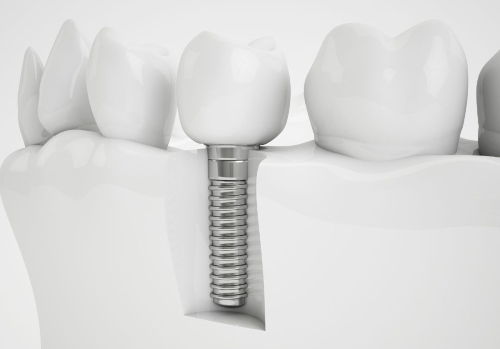Replacing missing teeth with dental implants is becoming increasingly popular. Dental implants are an excellent substitute for traditional dentures and bridges due to their natural appearance, enhanced comfort, and long-term durability with proper maintenance. However, the benefits of dental implants go beyond aesthetics and convenience. This article will explore the impact of dental implants on oral health and hygiene.
What Are Dental Implants?
Before diving into the benefits of dental implants, it’s essential to understand what they are. After surgically inserting small titanium posts into the jawbone to replace the roots of missing teeth. Dental implants serve as an anchor for attaching dental crowns, bridges, or dentures, thereby effectively restoring the missing teeth. Dental implants are a permanent and long-lasting solution for missing teeth.
How Dental Implants Improve Oral Health
Dental implants have several benefits for oral health, including:
Preventing Bone Loss
When teeth are missing, the jawbone can begin to deteriorate over time. By stimulating the bone and maintaining its strength, dental implants aid in the prevention of bone loss.
Maintaining Tooth Alignment
The absence of a tooth can cause the adjacent teeth to move, resulting in misalignment and issues with the bite. Dental implants help to maintain tooth alignment and prevent these issues.
Improving Chewing and Digestion
The inability to chew food properly due to missing teeth can result in digestive issues. Dental implants can restore the capability to chew properly, thereby improving digestion.
Preventing Gum Disease
Gaps in the teeth can lead to an increased risk of gum disease. Dental implants fill these gaps and prevent bacteria from accumulating, reducing the risk of gum disease.
Improving Speech
Missing teeth can affect speech, making it difficult to pronounce certain words. Dental implants restore speech and make it easier to communicate clearly.
How Dental Implants Improve Oral Hygiene
In addition to improving oral health, dental implants also have several benefits for oral hygiene, including:
Easier Cleaning
Dental implants are easier to clean than traditional dentures and bridges. In addition, they can be brushed and flossed just like natural teeth, making it easier to maintain good oral hygiene.
Improved Confidence
Dental implants act like natural teeth, which can improve confidence and self-esteem. This can lead to better oral hygiene habits, as individuals are more likely to take care of their teeth when they feel good about their smile.
Long-Term Cost Savings
Dental implants may cost more upfront than traditional dentures and bridges. Over time, dental implants can be cost-effective as they decrease the necessity for expensive repairs and replacements.
Who Is a Candidate for Dental Implants?
Only some people are candidates for dental implants. Candidates must have healthy gums and enough jawbone to support the implants. In addition, candidates for dental implants must be dedicated to maintaining excellent oral hygiene practices and attending routine dental appointments.
Conclusion
Dental implants are an exceptional remedy for missing teeth, providing a host of advantages for both oral health and hygiene. They can prevent bone loss, uphold tooth alignment, aid digestion, lower the risk of gum disease, and reinstate speech. Dental implants are easier to clean, boost confidence, and offer long-term cost savings. If you are missing teeth and pondering dental implants, consult your dentist to determine if you qualify.

